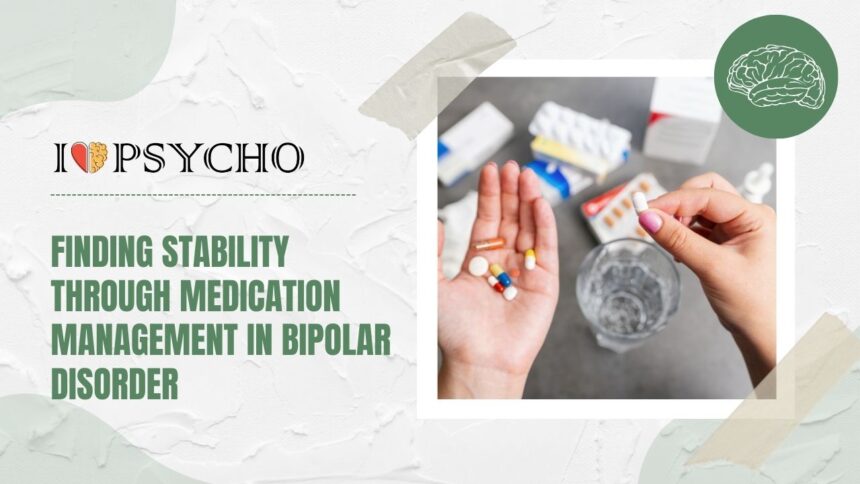Living with Bipolar Disorder can be a rollercoaster of emotions, highs, and lows that can leave you feeling like you’re on shaky ground. But fear not, because there is a beacon of hope in the form of medication management. By finding stability through proper treatment, those living with Bipolar Disorder can regain control over their lives and navigate the ups and downs with more ease. In this blog post, we will explore the importance of medication management in managing Bipolar Disorder and how it can make a significant impact on daily life.
Understanding Bipolar Disorder
Bipolar Disorder is a complex mental health condition characterized by extreme shifts in mood, energy levels, and behavior. These fluctuations can range from manic episodes of heightened excitement and impulsivity to depressive periods marked by sadness and lethargy.
Individuals with Bipolar Disorder may experience challenges in regulating their emotions and managing day-to-day activities. The exact cause of the disorder is not fully understood; however, it is believed to result from a combination of genetic, biological, and environmental factors.
Diagnosis of Bipolar Disorder typically involves a thorough evaluation by a mental health professional who assesses symptoms, medical history, and family background. It’s essential for individuals living with this condition to seek proper treatment to help stabilize their mood swings and improve overall quality of life.
The Importance of Medication Management
Living with bipolar disorder can present unique challenges that may impact various aspects of daily life. One crucial element in managing this condition is medication management. Properly administering and adhering to prescribed medications can play a significant role in stabilizing mood swings and reducing the frequency of episodes.
Medication management helps individuals with bipolar disorder maintain stability by regulating neurotransmitters in the brain, which are often imbalanced in those with the condition. By following a consistent medication regimen as directed by healthcare providers, individuals can experience improved symptom control and overall well-being.
It’s important for individuals with bipolar disorder to work closely with their healthcare team to monitor medication effectiveness and adjust dosages as needed. Open communication about any side effects or concerns is key to finding the right balance of medications that work best for each individual.
Remember, while medication management is essential, it is just one component of a comprehensive treatment plan for bipolar disorder. Engaging in therapy, adopting healthy lifestyle practices, and building a strong support system are also vital aspects of managing this complex condition effectively.
Types of Medications Used for Bipolar Disorder Treatment
When it comes to managing bipolar disorder, medication can play a crucial role in stabilizing mood swings. There are different types of medications used in the treatment of bipolar disorder, each targeting specific symptoms and helping individuals achieve stability.
Mood stabilizers like lithium are commonly prescribed to control manic episodes and prevent future episodes from occurring. Anticonvulsants such as valproic acid and lamotrigine are also used to stabilize mood fluctuations.
Atypical antipsychotics like quetiapine and olanzapine can help manage both manic and depressive symptoms. They work by regulating neurotransmitters in the brain to reduce extreme mood shifts.
Antidepressants may be prescribed cautiously in combination with mood stabilizers or antipsychotics to address depressive symptoms without triggering mania. However, they are usually avoided as standalone treatments due to the risk of inducing manic episodes.
It’s important for individuals with bipolar disorder to work closely with their healthcare provider to find the right medication regimen that works best for them.
Common Challenges with Medication Management
Managing medication for bipolar disorder can come with its own set of challenges. One common issue is finding the right medication that works effectively without causing unwanted side effects. It can sometimes take time and adjustments to get the dosage just right for each individual’s unique needs.
Another challenge is adhering to a consistent medication schedule. Forgetting doses or skipping medications can disrupt the balance that has been achieved, leading to potential mood swings and instability. Additionally, dealing with stigma or judgment from others about taking psychiatric medications can also be a hurdle for some individuals.
Financial concerns related to the cost of medications or insurance coverage may pose another obstacle in maintaining necessary treatment. As well, navigating potential interactions between different medications or managing any physical health conditions alongside bipolar disorder treatment can add complexity to medication management.
Seeking support from healthcare providers, therapists, and loved ones can help in overcoming these challenges and finding strategies that work best for each person’s unique situation.
Tips for Effective Medication Management
Navigating the world of medication management for bipolar disorder can be complex, but there are practical tips that can make the process smoother. It’s crucial to establish a routine for taking your medications at the same time each day. This consistency helps maintain stable levels in your system.
Keeping a medication journal can also be beneficial in tracking how you feel after taking each dose. Note any side effects or changes in mood to discuss with your healthcare provider during check-ins. Additionally, setting up reminders on your phone or using pill organizers can help prevent missing doses.
Communication is key – don’t hesitate to ask questions or voice concerns about your medications. It’s important to understand why you’re taking them and how they work. Never adjust dosage or stop taking medication without consulting your doctor first.
By incorporating these tips into your daily routine, you’ll be better equipped to manage your bipolar disorder effectively through medication management.
Combining Medication with Therapy for Optimal Results
When it comes to managing bipolar disorder, combining medication with therapy can be a game-changer. Medication helps stabilize mood swings and manage symptoms, while therapy provides valuable tools for coping and understanding triggers.
Therapy sessions offer a safe space to explore emotions, develop healthy coping mechanisms, and enhance self-awareness. Cognitive-behavioral therapy (CBT) is particularly effective in helping individuals recognize negative thought patterns and behaviors.
By integrating medication management with therapy, individuals can address both the biological and psychological aspects of their condition. This holistic approach increases the likelihood of achieving long-term stability and improved quality of life.
Therapists work collaboratively with patients to set goals, track progress, and make adjustments as needed. The support provided during therapy sessions complements the effects of medication by promoting emotional regulation and resilience.
Combining medication with therapy creates a comprehensive treatment plan that empowers individuals to take control of their mental health journey.
The Impact of Proper Medication Management on Daily Life
Living with bipolar disorder can be challenging, but proper medication management can make a significant impact on daily life. When medications are taken consistently and as prescribed, individuals may experience more stability in their mood swings. This stability can lead to improved relationships with family and friends as well as better performance at work or school.
By managing medications effectively, individuals with bipolar disorder can also reduce the frequency of manic and depressive episodes. This means fewer disruptions to daily routines and a higher quality of life overall. Additionally, proper medication management can help alleviate symptoms such as irritability, impulsivity, and anxiety, allowing for a more peaceful existence.
It’s important to remember that finding the right combination of medications may take time and adjustments along the way. However, by working closely with healthcare providers and staying committed to the treatment plan, individuals can regain control over their lives and navigate through daily challenges with greater ease.
Conclusion
Managing bipolar disorder through medication is a crucial part of achieving stability and improving quality of life. By understanding the condition, staying committed to medication regimens, and seeking support from healthcare providers, individuals with bipolar disorder can effectively manage their symptoms and lead fulfilling lives. Remember that each person’s journey with bipolar disorder is unique, so finding the right combination of medications and therapies may require some trial and error. With patience, perseverance, and a proactive approach to treatment, those living with bipolar disorder can find stability and hope for a brighter future ahead.







